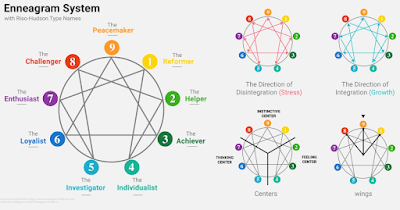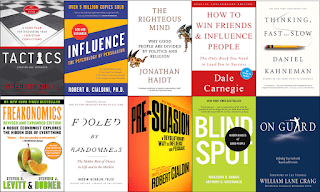
As I was getting in bed a couple nights ago, a friend texted me to ask about the documentary Marketing the Messiah, so I decided to stay up and watch it. The documentary purports to tell “the ‘true’ story of early Christianity,” and from a filmmaking perspective, it’s pretty well done. They use humor well, the production value is high-quality, and they assembled a seemingly impressive arrangement of scholars. From an academic perspective, it’s filled with half-truths and fringe theories that would be hard-pressed to get published in even the most liberal academic sources.
I took several notes on the film while watching it so I could have specific things to talk to my friend about when we meet to discuss the claims in the film. As I told him over text, the claims made in the film should cause Christians to have serious doubts about their faith…but only if the claims of the film are true. Fortunately for Christians, we have good evidence that the claims they make are not true and this article is my attempt to organize my thoughts about the film as preparation to speak with my friend.
Scholarship and Credibility
In the internet age, it is difficult to know who to trust and why. If you’ve never had the opportunity to study a topic for several years, it’s hard to get a sense of how deep a topic can be and how wide the scholarly opinions can be. I like to think of scholarship like a mountain where the height at any given point represents a scholars knowledge in that specific area. Under this analogy, a scholar’s specialty is the peak where they have the most knowledge. As disciplines or sub-disciplines move away from the peak, they are less knowledgeable and more reliant on the other scholars who do specialize in those areas.
For instance, a New Testament (NT) scholar likely has better than average knowledge of theology, Old Testament studies (including Hebrew), Christian history, first-century history, other religions, archaeology, and maybe a few other disciplines. They likely have more in-depth knowledge in multiple sub-disciplines of NT studies like Greek, textual criticism, document dating methods, Church fathers, all the books of the NT, New Testament theology, and maybe a few more (and there are more). Someone specializing in Pauline studies would have even more knowledge in the letters of Paul, Pauline theology, first-century Judaism, first-century Greek philosophy, and more. Then, each one of those sub-disciplines can be specialized in.
Someone who specializes in a different sub-discipline just won’t have the same level of knowledge in these areas, meaning they won’t be as knowledgeable about nuances and the broad range of scholarly views. The further away from a scholar’s specialization in a topic, the less likely they are to have as deep of knowledge in other specialties. I am working on an article to explain this in concrete and detailed way and will link it here when I finish.
All that to say, the content of this documentary was mostly in the purview of New Testament studies and first to fourth-century history, but most of the scholars in the documentary had specialties in other areas, and with the exception of Michael Bird (theologian), they were all liberal scholars, and at least two (Price and Carrier) are on the extreme fringes and not taken seriously even by many liberal scholars (Google Bart Ehrman’s comments about Jesus mythicism).
In terms of persuasive tactics, this is an extremely effective method to convince people of what is true as long as people are not willing to investigate their claims and the works of more mainstream scholars. It takes time and hard work to figure who is trustworthy, where people are getting their information, and what to believe so most documentaries (not just this one) can seem extremely persuasive by being really biased while trying to appear non-biased.
Examples
Broad, general critiques about the documentary can be hard to conceptualize without specific examples so here are a couple examples of sketchy scholarship in the documentary.
Perhaps the most surprising thing in the documentary was the scholar discussing the infancy gospel of Thomas as though it were a reliable and accurate source about Jesus’ childhood. At best, it’s a mid-second century document, meaning it was written 150 years after Jesus’ birth and childhood. The reason it is not included in the Bible is not because of what it says, but because it is a much later document than the other books of the NT and was never considered scripture among early Christians.
To put this in perspective, this would be similar to me writing about Abraham Lincoln’s birth and childhood today and adding details about his childhood that are not in any source written before now. Granted, a little more time has passed since Lincoln’s birth than the amount of time the Infancy Gospel Thomas was written after Jesus’ birth, but even if I was writing 50 years ago, would you still trust what I said about his childhood if there were no earlier sources that recorded what I wrote? I would hope not, even if I was his most direct living kin.
Another example comes from a subtle, passing comment they made. The persuasive power of making such a comment is strong because it makes it seem like it is absolutely and inarguably true. The comment they made was a reference to other dying and rising Gods or Saviors before the time of Jesus, which is meant to imply that Jesus was just a copycat of other mythologies. The problem is that the original source materials do not depict these other figures (Osiris, Horis, etc.) as dying and rising Gods or in some cases, the other mythologies copied Jesus.
I don’t have the time or the space to write in detail about the other issues in the documentary but so I will just briefly mention the other points I noted.
- They misrepresented the origin of Jesus’ label as the Son of God
- They overemphasized Paul’s mission to the gentiles while downplaying his and other apostles’ mission to Jews.
- They presented a liberal scholar view as the unequivocal consensus on several topics.
- They ignored the historical accuracy of Luke and Acts.
- They completely ignored other views on the dates and authorship of the gospels and epistles.
- They ignored non-biblical historical sources that didn’t support their view.
- They inaccurately portrayed how Christianity became the dominant religion in Rome.
- They ended with the extremely fringe view that Jesus never actually existed which is a view help by arguably no qualified scholar (there are debates about who’s qualified, but even with a generous view, it’s still a very very rare view).
- They also made several other more minor claims that I just didn’t care to write down in my notes.
So Who’s Right?
Why should you trust me over the people in this documentary? Well for one reason, I’m not necessarily trying to convince people that this documentary is wrong, only that there are a lot of scholars in more relevant fields who would strongly disagree with a huge proportion of the claims in this documentary, including Bart Ehrman (NT scholar) who is hostile to Christianity.
As for who to trust, knowing who or what information to trust is difficult with all topics and is one of the reasons why our culture is the way it is right now. If you really want know what is true, you have to assume both sides are equally biased or wrong and apply equal criticism across the board. At the same time, it’s important to read original sources (such as the Infancy Gospel of Thomas) and learn about these sources from scholars on both sides of an argument.
Resources
If you want to investigate the opposing claims to this documentary, here are just a few of the many resources available to help you do that.
Beginner or Introductory
Cold-Case Christianity by J. Warner Wallace. He also has a website and YouTube channel by the same name with a lot of useful resources.
Can we still Believe the Bible by Craig Blomberg
Can we Trust the Gospels by Peter Williams
Intermediate to Advanced
The Historical Reliability of the Gospels by Craig Blomberg
The Historical Reliability of the New Testament by Craig Blomberg
Jesus and the Eye-Witnesses by Richard Bauckham
The Resurrection of Jesus by Michael Licona
Experts Featured in Documentary:
Here is the list of all the “experts” interviewed in the documentary. Most have relevant graduate degrees and work in related fields, but none of them seem to have direct expertise with ancient document dating methods or historical reliability of ancient documents. While there is a mix of Christians and non-Christians on this list, I would classify Bird and theologically moderate to conservative, but everyone else seems to be on the liberal end of the spectrum.
Michael Bird, Theology, Ridley College
- Ph.D. appears to be in theology or New Testament, but I couldn’t find specifics.
Richard Carrier, No academic affiliation
- Ph.D. in Ancient History
Geoffrey Dunn, Department of Ancient Languages and Cultures, University of Pretoria
- Ph.D. Specific field unknown and doesn’t seem to publish on dating/reliability methods
Marc Goodacre, Department of Religious Studies, Duke University
- D. Phil in Theology (New Testament)
David Fitzgerald, No academic affiliation
- No graduate degree. Has a B.S. in History and Liguistics
Chris Forbes, Department of Ancient History, Macquarie University
- Ph.D. Field unknown, but publishes in NT history
Brent Landau, Senior Lecturer in Religious Studies, University of Texas
- Th.D. – New Testament & Early Christianity
Raphael Lataster, Religious Studies, University of Sydney
- Ph.D. Religious Studies
Amy-Jill Levine, Professor of NT and Jewish Studies, Vanderbilt
- Ph.D. field unknown but published in NT
Shushma Malik, Lecturer in Classics, University of Roehampton
- Ph.D. appears to be in Classics
Robert Price, No academic affiliation
- Ph.D. in Theology and Ph.D. in NT
David Runia, University of Melbourne and Australian Catholic University
- LittD (Doctor of Letters) in Classics and Philosophy



